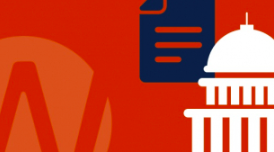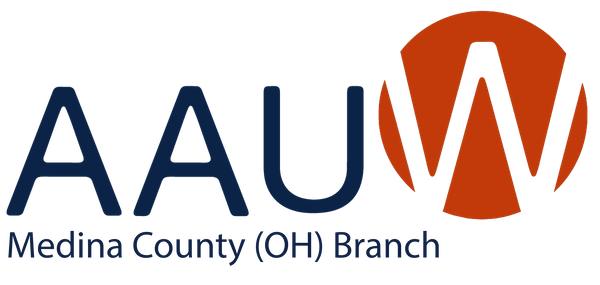Public Policy
The E.R.A. is Victorious, or is it?
What it Says:
- Section 1: Equality of rights under that law shall not be denied or abridged by the United States or by any state on account of sex.
- Section 2: The Congress shall have the power to enforce, by appropriate legislation, the provisions of this article.
- Section 3: This amendment shall take effect two years after the date of ratification.
The E.R.A. (Equal Rights Amendment) easily passed Congress in the early 70’s and then on January 27, 2020, Virginia was the 38th state to ratify it, meeting the two requirements for mak- ing it valid. Federal law requires the archivist of the United States to certify an amendment whenever it has met those two requirements. A 2020 memo from the Justice Department’s Of- fice of Legal Counsel that provides legal advice to the executive branch contended that the E.R.A. is no longer valid because it failed to meet a seven-year deadline the Congress initially set. The Constitution does not specify anything about deadlines, and whether there was really a deadline is a point of contention now. The legal question is whether Congress has the legal power to set a time limit for ratification. There have been cases where a time limit has been upheld and others where amendments have been ratified as long as 200 years after being drafted. On January 27, 2022 President Biden called on Congress “to act immediately to pass a resolution recognizing” that the E.R.A. has been properly ratified and is part of the Constitution.
Why do we need the E.R.A.? We have made progress on gender equality through the courts and some legislation, but that progress can be easily reversed by legislation, and decisions can be difficult to enforce. The E.R.A. would clarify that women’s issues including sex discrimination in employment, wage equality, parental leave, violence against women and reproductive rights are protected.
What can we do? On March 17, 2021 the House of Representatives voted with bipartisan support to remove the deadline for ratification of the E.R.A. This critical resolution now needs to be voted upon by the Senate. We need to urge our Senators to support the ratification of the E.R.A. Please use your influence to help get this important women’s issue passed by writing our Ohio Senators, Sen. Sherrod Brown and Sen. Rob Portman
AAUW New Public Policy Website
 The newly revamped AAUW Public Policy Website is very helpful and easy to interact with – please check it out at: AAUW Public Policy website.
The newly revamped AAUW Public Policy Website is very helpful and easy to interact with – please check it out at: AAUW Public Policy website.
2019 -2021 AAUW “Public Policy Priorities underscore AAUW’s mission to advance gender equity for women and girls through research, educa- tion, and advocacy. The work of AAUW builds upon responsible public participation…(aauw.org).” Listed on the website are priorities that pro- vide a basis for AAUW member actions at the local, state, national, and international levels.
Explore the Issues, Get Empowered, and Take Action, are the three main categories you can click on and access clearly stated information within each page. Under ‘Take Action’ for example, there is a Two- Minute Activist page; listing ways you can get involved without leaving your home during our national sequester.
Check out the easy interactive site and I suggest you download the AAUW Public Policy Priorities word document and keep it on your laptop as a reference.
The local medina Public Policy Committee is off to a slow start but will gear up soon as I have had an unprecedented summer and fall with many changes in my job and in family responsibility.
If you are interested in getting involved please contact me – I would love to hear from you.
Cate Hunko, Public Policy, email: chunko@kent.edu
IN SUPPORT OF EQUAL PAY, Aug., 2020
Ohio is ranked 31st in Equal Pay Laws, where the current gender pay ratio is 79% and considered moderate compared to the other 50 states. The number 1 rank is California where the pay ratio is 88% and considered strong (aauw.org 2020). Disappointing statistics all around as women in the U.S. have been actively working to create an equal pay ratio for many centuries.
As early as in the 1800’s, for example, numerous women actively participated in reform movements. The women’s rights movement truly blossomed in 1848 in the Seneca Falls Convention. Ohioans Lucy Stone and Harriet Beecher Stowe played a vital role in women’s rights and in the abolitionist movement through their speeches and writings. At the 1851 Women’s Rights Convention held in Akron, Ohio, Sojourner Truth delivered the famous abolitionist and women’s rights speech.
Present day Black women face a wider-than-average pay gap despite the fact that they participate in the workforce at much higher rates than most other women (aauw.org 2020). The abolitionist movement (Black Lives Matter movement) and women’s rights movement have a history of working in tandem up to present day.
Before COVID-19, the Policy Committee, with Anne Gates in leadership, was very close to implementing a venue for AAUW’s publicly available Work Smart program. The program provides tools for women in the workforce or looking to enter the workforce, when negotiating for a salary. As the virus winds down and we develop a new normal, look for information regarding a local Work Smart workshop lead by the AAUW Medina Branch Public Policy Committee.
The national AAUW web site provides up to date statistics regarding Workplace & Economic Equity – find these at: https://www.aauw.org/
- The Future of Work
- The Gender Pay Gap
- The Motherhood Penalty
- Women and Retirement
- Workplace Sexual Harassment
June, 2020
During this election year, AAUW commemo- rates two important milestones. The first of these is the 100th anniversary of the passage of the Nineteenth Amendment to the U.S. Constitution. Ratified on August 18, 1920, the Amendment granted voting rights to American women. This was the result of decades of efforts, highlighted by the 1848 Seneca Falls Convention, whose delegates asserted that women are independent individuals who should be granted their own political identifies.
The second milestone is the fifty-fifth anniversary of the Voting Rights Act, which President Lyndon B. Johnson signed into law on August 6, 1965. This historic piece of civil rights legislation outlawed racial discrimination in voting and was a response to practices faced by African Americans at both the local and state levels in exercising their right to vote for nearly one hundred years.
Within this context, AAUW looks ahead to the 2020 election and to policies that advance equality for women in the workplace and in education. Employing a non-partisan, values-focused approach, AAUW has embarked on a national public policy agenda that has, at its core, a partnership with grass-roots activism.
As outlined in last month’s issue of The Voice, the priorities for this year’s election include the following: (i) supporting new laws to close the gender pay gap, (ii) implementing paid sick and caregiving leave, (iii) reducing student debt, (iv) instituting robust protections against harassment, (v) expanding opportunities in STEM, and (vi) protecting and expanding the right to vote.
To aid in accomplishing these priorities, AAUW has recently committed additional staff to public policy, and in the coming months, action alerts, activities, and resources should be forthcoming to aid in local policy efforts. One helpful piece, How to Get Involved in the 2020 Elections, is available on the national AAUW website: https://www.aauw.org/resources/article/get- involved-in-elections/
Finally, it has been my pleasure to serve as branch Public Policy Chair for the past two years. I am delighted that Catherine (Cate) Hunko will be assuming this role for the next two years, and we look forward to the leadership that she will bring to the position. If you have interest in joining the Public Policy Committee or have policy-related ideas to share, please contact Cate at 330-715-5935 or chunko@ kent.edu.
Source: AAUW. (January 21, 2020). AAUW releases gender agenda for 2020 election. Retrieved from:https://www.aauw.org/resources/news/media/press- releases/aauw-releases-gender-agenda-for-2020- election/
AAUW. How to get involved in the 2020 elections. Retrieved from: https://www.aauw.org/resources/article/ get-involved-in-elections/
April, 2020
This month’s public policy focus is twofold: Science, Engineering, and Math (STEM) education and reauthorization of the Violence Against Women Act. With respect to the former, according to the U.S. Department of Labor, extensive math or science preparation is needed to prepare individuals for the top ten professional fields for which a bachelor’s degree or more is needed. The significance of preparing women for these positions is apparent when considering that, although women comprise nearly one-half of all workers in the U.S., they are represented in only 29% of the STEM occupations. The disparity in representation is acute with respect to engineering and computer science, where women represent 12% and 26% of the employees, respectively. Further, Hispanic and Black females account for only 2% of engineers in the U.S.
Notably, when considering disparities in employment among women, according to research by Landivar in 2013, those in STEM professions earned 27.7% more than women in non-STEM fields; this was considerably greater than the earnings premium for men. Accordingly, the gender wage gap is smaller in STEM professions than in non-STEM ones.
As a national organization, AAUW outlines several measures that can be taken to close the STEM gap. These include promoting STEM education from preschool throughout high school; exposing girls to role models in STEM fields; integrating recognition of STEM opportunities into teacher education pro- grams; actively encouraging college women to pursue academic majors in STEM; and focusing on retaining women who are engaged in the STEM fields. Perhaps most significant is the importance of instilling a mind- set of confidence in girls and women as they pursue their interests in the STEM fields.
The second area of focus, the Violence Against Women Act (VAWA), requests prompt attention. As stated on the Medina AAUW website, “Stay-at-home orders may be good for flattening the COVID-19 curve, but they create dangerous conditions for women and their abusers. Rates of domestic violence are already surging.” If you wish to sign on and support a petition sponsored by the WomanUp group to be presented to Congress, go to the Medina AAUW home page and complete the brief online form.
Sources:
- AAUW: Closing the STEM Gap:
- AAUW Quick Facts: Science, Technology, Engineering, and Math (STEM). 2017, July.
- AAUW: The STEM Gap:
March, 2020
Please be advised that this event scheduled for March 31st has been postponed because of health concerns. It will be rescheduled for a later date. Look for information in a future newsletter. Meanwhile, here is the information prepared by the branch Public Policy
Committee. You can find information on “Work Smart” at aauw.org.
You are invited!
 In partnership with the Medina County University Center (Medina campus of the University of Akron), Medina AAUW is sponsoring “Work Smart,” a free, online training designed to empower women with the skills and confidence to advocate for themselves with respect to salary negotiation and professional advancement in the workplace.
In partnership with the Medina County University Center (Medina campus of the University of Akron), Medina AAUW is sponsoring “Work Smart,” a free, online training designed to empower women with the skills and confidence to advocate for themselves with respect to salary negotiation and professional advancement in the workplace.
The workshop is scheduled for Tuesday, March 31 from 5:30-8:00 p.m. The date coincides with Equal Pay Day, which reflects how far into 2020 women must work in order to earn what men earned in 2019. Refreshments will be provided.
Please assist the Public Policy Committee with its planning by completing a five-question online survey. Click on the link or cut and paste this address into your browser: https://www.surveymonkey.com/r/ WQBLH6V . Your responses will be returned to the committee, and your participation is appreciated.
The program is open to the community, and spaces will be reserved for Medina AAUW members until March 15. Individuals with laptops are asked to bring them to the training; a limited number of computers are available for participants who need them and may be reserved at the time of registration.
To learn more about the Work Smart training and to register, contact Cathy Posner (cathy@transitionconsultingandcoaching.com; 216-337-2106) or Anne Gates (agates1107@gmail.com; 330-464-4733).
Medina Branch Public Policy Committee is Anne Gates, chair; Susan Holbrook, Cat Hunko and Cathy Posner. If you are interested in being a member of this team, contact Gates.
February, 2020
Registration will open soon for the AAUW OH 2020 Conference, scheduled for Saturday, April 18 at the Quest Polaris Conference Center on the north side of Columbus.
In addition to discussions on AAUW priorities, the keynote speaker is Lisa Maatz. Her expertise is summarized on the AAUW Ohio website as follows: “Lisa is a nationally sought-after speaker, writer and political analyst. As the former Vice President of Government Relations and Advocacy at AAUW, she is a frequent speaker at Capitol Hill events and has developed a reputation for her strategic approach to legislation and advocacy at all levels. We remember her being an invited witness at President Obama’s signing of the Lilly Ledbetter Fair Pay Act, which reset the statute of limitations to file pay discrimination lawsuits, allowing more workers to seek restitution.” (source: https://aauw-oh.aauw.net/). As a footnote: Maatz is a graduate of Highland schools and grew up in Hinckley. She is a NE Ohio resident.
At the local level, Medina AAUW’s Public Policy Committee (Anne Gates-Chair; Susan Holbrook, Cate Hunko, and Cathy Posner) has been meeting monthly to plan opportunities for promoting AAUW’s priorities of education and economic security for women. Look for a brief survey on these issues in the coming weeks. If you are interested in joining the group or in knowing more about its activities, please contact Anne Gates, 330-464-4733.
January, 2020
At the state level, AAUW Ohio’s biennial conference is scheduled for Saturday, April 18, 2020 at the Quest Polaris Conference Center on the north side of Columbus. In addition to electing new state officers, it is expected that, based on the planning session at last fall’s meeting, some number of policy issues will be discussed. Please mark your calendars and consider taking part in this gathering of AAUW members from across the state. A specific agenda of the day’s events will be available closer to the date.
November, 2019
At last month’s statewide AAUW meeting, Kendra Davis, senior vice president for advancement and partnerships at the national AAUW office, offered a motivational talk on the positive work being done to meet AAUW’s strategic plan priorities. She reported that the Building Block STEM bill, the focus of which is supporting women and girls in STEM (science, technology, engineering, and mathematics) fields, has passed the U.S. Senate and is expected to do the same in the House of Representatives. Strides are being made as well with respect to salary negotiations and leadership training through the Start Smart/Work Smart and Empower programs, respectively. Ms. Davis shared the striking statistic that 2.5 million children will be released from poverty once pay equity is achieved in the United States.
At the state level, several pieces of legislation are currently in progress of significance to AAUW. Among these are the Equal Pay Act (HB 304), introduced on June 26, and Senate Bill 91, which is intended to establish family and medical leave benefits. Also introduced this past summer was a plan for school funding reform (HB 305), which is just starting to make its way through the General Assembly. Finally, AAUW is watching a number of gun control bills originating in both the House and the Senate; the focus of AAUW’s interest in this arena is with respect to violence against women.
Locally, the Public Policy Committee is working on initiatives related to education for both college and high school students. Plans are underway to blend the online Work Smart training with a facilitated workshop format for college students; the initial outreach has been to OSU-ATI in tandem with the Wooster AAUW chapter. There is also a possible partnership with the Heights-Hillcrest-Lyndhurst chapter for this training, perhaps through Cuyahoga Community College. The Committee is further interested in adapting some of the key principles from Start Smart/Work Smart to a high school audience and is exploring ways to partner with local organizations for this purpose. All interested members are invited to join the Committee; please contact Anne Gates for more information.
 AAUW is committed to reaching 10 million women to negotiate fair and equitable salaries and benefits by 2022, and end the gender pay gap by 2030. AAUW is working nationally and locally on enhancing policies and laws, working with employers to improve practices, and training women in effective salary negotiation.
AAUW is committed to reaching 10 million women to negotiate fair and equitable salaries and benefits by 2022, and end the gender pay gap by 2030. AAUW is working nationally and locally on enhancing policies and laws, working with employers to improve practices, and training women in effective salary negotiation.
While we wait for policies and employer culture to change, we are working to empower women nation-wide with our Start Smart/Work Smart program to teach skills to effectively negotiate their salary and benefits and become agents of change in their communities.
